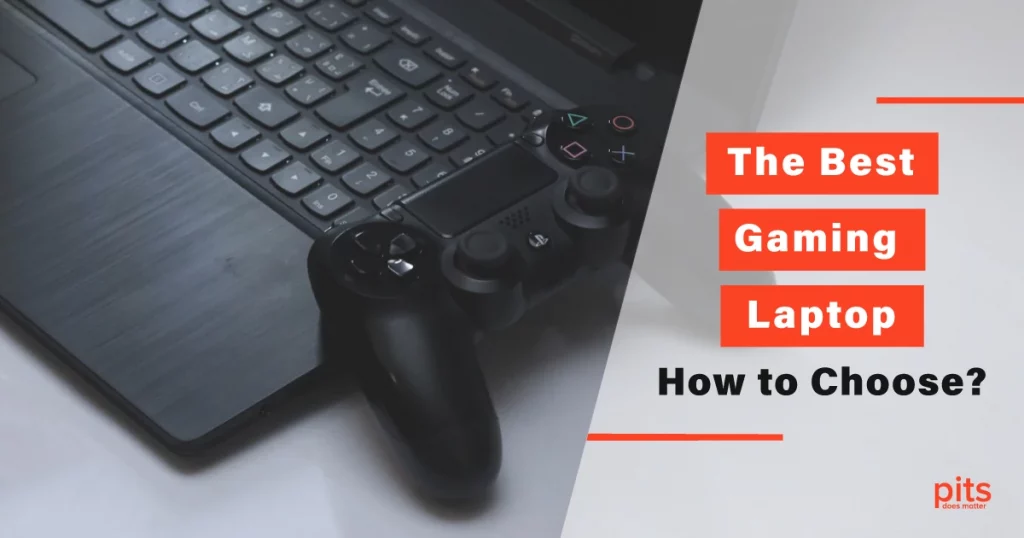Having the right laptop can distinguish between victory and defeat in gaming. However, with so many options available on the market, it can be overwhelming to choose the right gaming laptop that suits your needs without overloading your budget. From the power-packed processor and GPU to the immersive display and sound, every element plays a crucial role in defining the gaming experience. In this article, we will explore the key factors to consider when looking for a good gaming laptop and how to avoid getting overwhelmed by the plethora of options.
MSI GE76 Raider - Powerhouse for Gamers and Creators
When choosing the best gaming laptop, particularly focusing on CPU and GPU performance, the MSI GE76 Raider stands out prominently. It includes an Intel Core i9 CPU and an NVIDIA GeForce RTX 3080 GPU, perfect for gamers. This combination ensures smooth gameplay on the most demanding titles and provides ample power for content creation, VR experiences, and high-resolution streaming. The MSI GE76 Raider is well-suited for those looking to enjoy the best gaming experience possible.
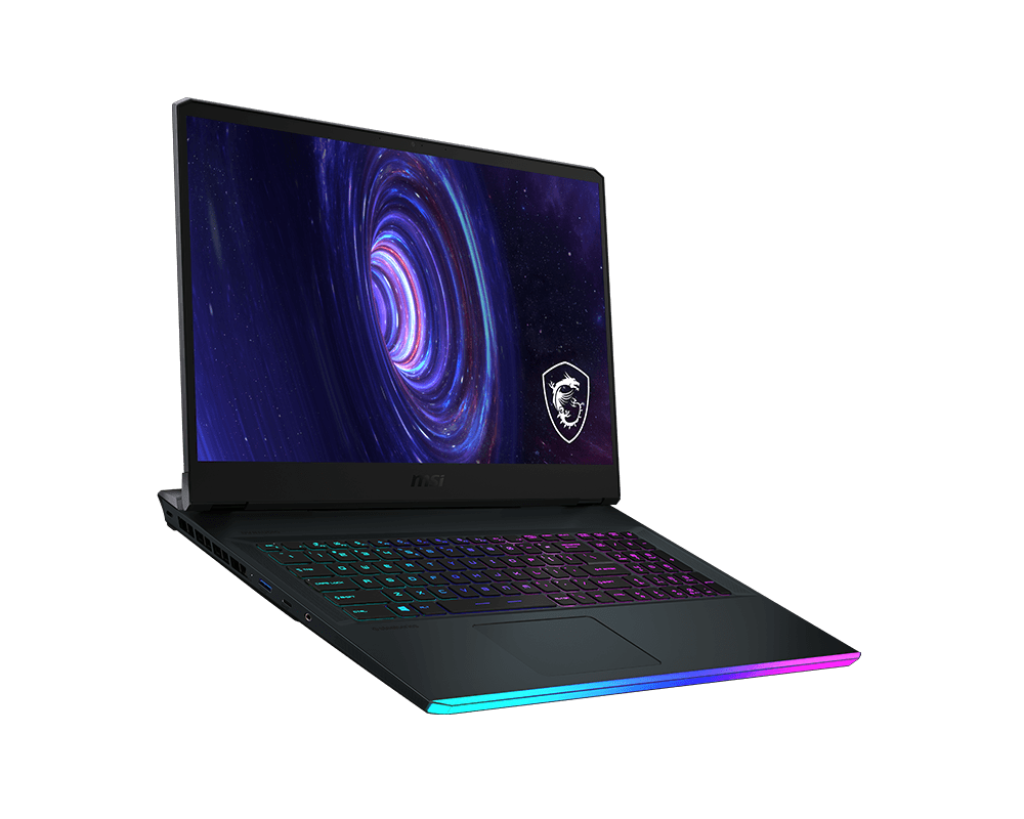
Its 10th-generation Intel Core i9 processor delivers lightning-fast speeds and up to 5.3 GHz of overclocking potential. This means you can expect seamless performance on even the most demanding games, giving you an edge over your opponents.
Cooling System
Another key feature of the MSI GE76 Raider that sets it apart as one of the best gaming laptops is its cooling system.
Gaming laptops require effective cooling to maintain performance under prolonged gaming sessions, and the MSI GE76 Raider addresses this with its Cooler Boost Technology, featuring dedicated thermal solutions for both the CPU and GPU with a total of 11 heat pipes. This ensures optimal performance by minimizing heat and preventing throttling, allowing gamers to push the limits of their hardware without worrying about overheating.
Alienware M18 - Unparalleled Storage Solutions
For gamers who value extensive storage in their setup, the Alienware m18 stands out as a top choice. This gaming laptop is renowned for its unparalleled storage solutions, offering dual drive slots that support up to 4TB of NVMe SSD storage. This immense storage capacity is perfect for gamers and professionals, providing ample space for large game libraries, high-resolution video projects, and extensive collections of software and applications. The NVMe SSDs also contribute to blazing-fast load times and swift data transfer speeds, enhancing the overall performance and user experience.
With the Alienware m18, users can expect remarkable storage space and the speed and efficiency needed to handle demanding tasks and games without a hitch.
Customizable Lighting and Graphics
The laptop comes with an Alienware Command Center, allowing users to personalize the lighting on their keyboard, touchpad, and exterior in over 16.8 million colors.
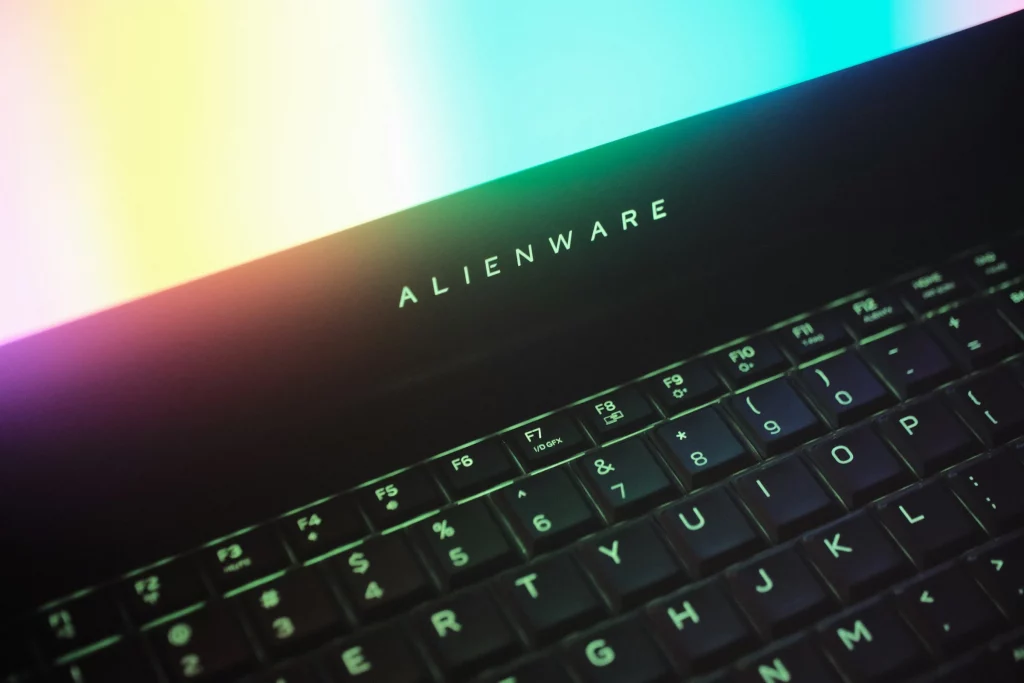
This adds a special touch to the gaming experience and allows users to create customized setups. Additionally, the Alienware m18 offers options for customizable graphics, allowing users to fine-tune their gaming visuals according to their preferences and needs. This level of personalization adds an extra layer of excitement and immersion, making the Alienware m18 a top choice for gamers looking for a fully customizable gaming experience.
Asus ROG Strix Scar 18 - Long Battery Life
The Asus ROG Strix Scar 18 solidifies its place in gaming by combining high-performance hardware with remarkable battery longevity. This feature distinguishes it as one of the best gaming laptops regarding battery life. It is equipped with a cutting-edge 90Wh battery that ensures gamers can engage in extensive gaming sessions without the interruption of frequent recharging. This battery prowess is complemented by an energy-efficient architecture, including the latest CPUs and GPUs that optimize power consumption without compromising performance.
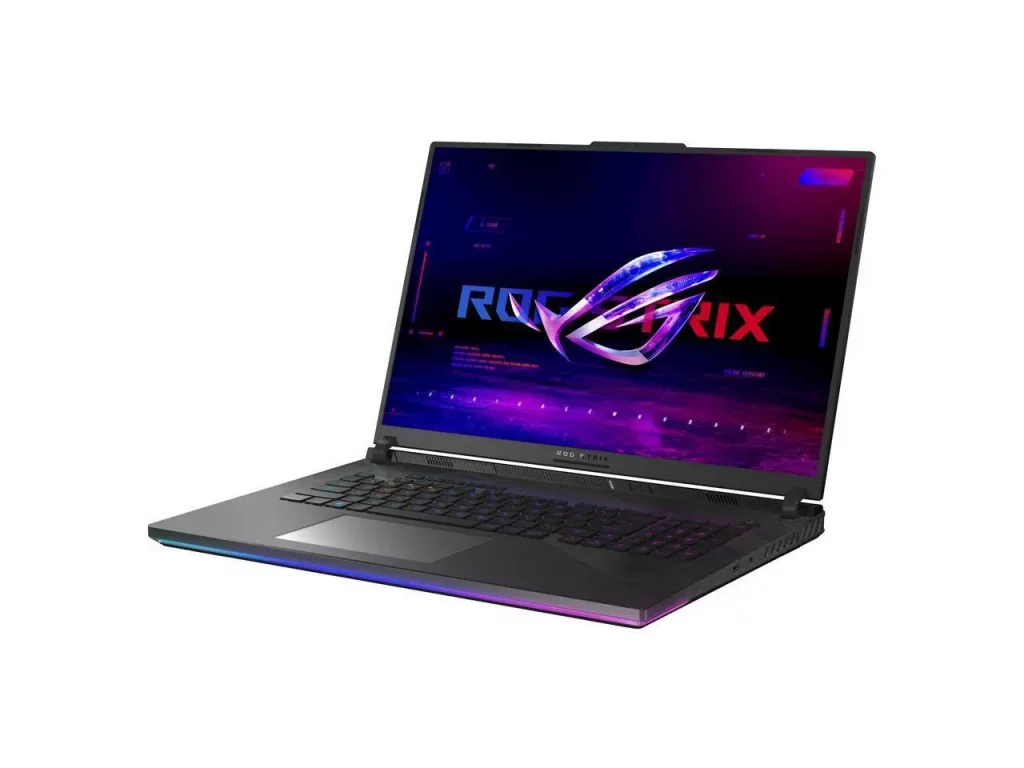
The ROG Strix Scar 18 includes fast-charging tech for a rapid battery recharge, ensuring gamers can swiftly get back into action. The Asus ROG Strix Scar 18 excels in gaming, showcasing a balance between battery life and performance in a gaming laptop.
With its extended battery life, the Asus ROG Strix Scar 18 is praised as one of the best gaming laptops for its top-tier hardware specifications, guaranteeing an unmatched gaming experience.
Powering this gaming behemoth is the latest generation Intel Core processor and NVIDIA GeForce RTX graphics, delivering raw performance and real-time ray tracing capabilities for ultrarealistic visuals. The ROG Strix Scar 18 also boasts a high-refresh-rate display, which can go up to an astonishing 300Hz, providing gamers with super smooth gameplay and an edge in competitive settings where every millisecond counts.
Razer Blade 14 - The Ultimate Portable Gaming Powerhouse
The Razer Blade 14 emerges as a pinnacle of portable gaming excellence, blending remarkable performance with compact design to offer what many consider the best gaming laptop experience. At the heart of its prowess lies the latest AMD Ryzen processors, coupled with NVIDIA GeForce RTX graphics, delivering a powerhouse performance capable of easily handling the most demanding games and creative tasks.
Including these high-end components ensures that the Blade 14 can offer desktop-class gaming performance in a laptop that is just 0.66 inches thin.
The Razer Blade 14’s meticulously designed vapor chamber cooling system distinguishes it from its superior hardware. Whether you are a gamer, creative professional, or need a high-performance laptop, the Razer Blade 14 is an excellent choice that checks all the right boxes.
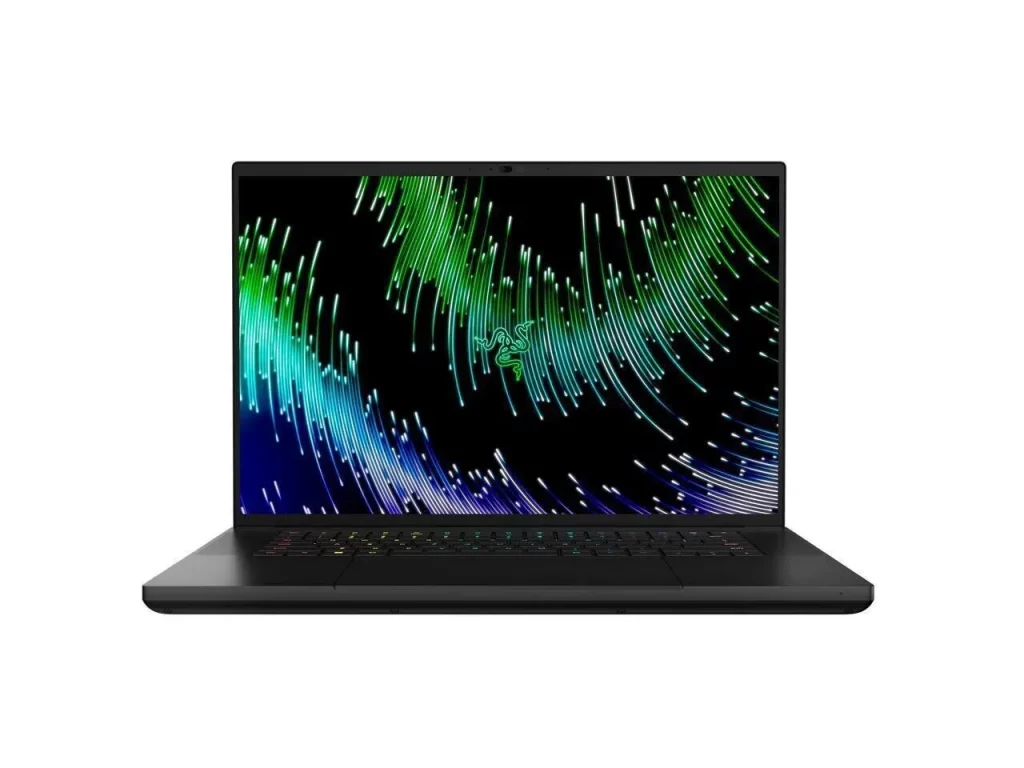
This system efficiently dissipates heat to maintain peak performance during extended gaming sessions without the bulk typically associated with powerful gaming laptops. This innovative cooling solution underlines Razer’s commitment to providing an uncompromised gaming experience in a portable and sleek form factor.
Lenovo Legion Pro 7i - Redefining Gaming Laptop Excellence
The Lenovo Legion Pro 7i Gen 8 is a formidable contender in high-performance gaming laptops, pushing the boundaries of innovation and user experience. At its core, the Legion Pro 7i Gen 8 is powered by the latest 12th-generation Intel Core processors and NVIDIA GeForce RTX 30 series graphics, offering an explosive combination of processing power and visual excellence.
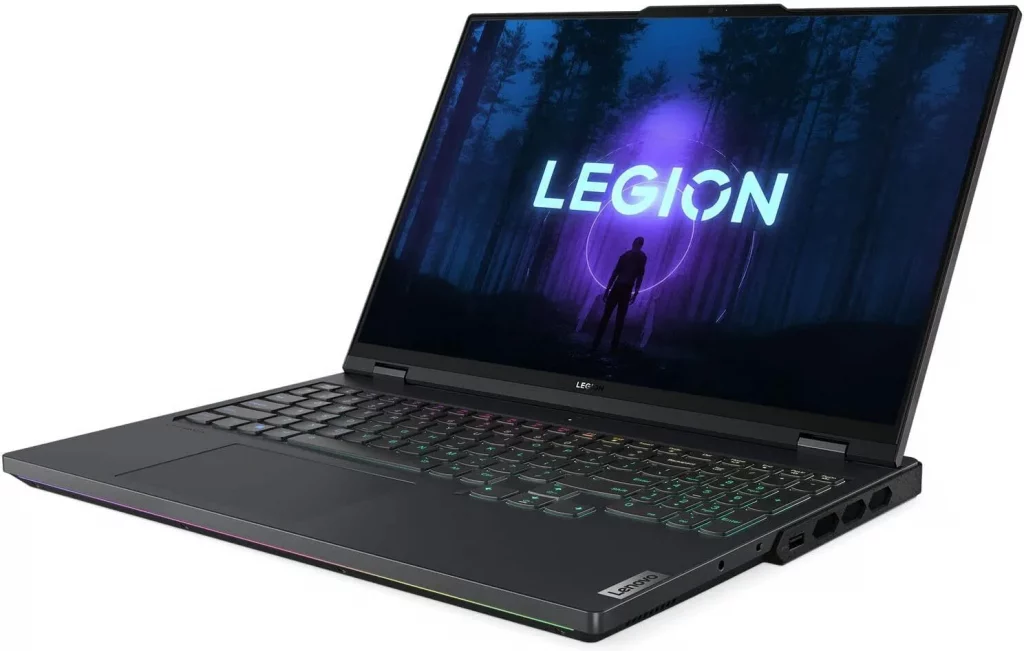
These cutting-edge components enable the laptop to effortlessly tackle the most intensive games and creative tasks, delivering an experience that is both smooth and visually stunning.
Furthermore, the Legion Pro 7i Gen 8 shines with its impressive 16-inch WQXGA (2560×1600) display, boasting a 165Hz refresh rate and HDR support. This combination ensures crisp, vivid visuals with fluid motion, immersing every gaming session.
Utilizing an advanced Coldfront 4.0 cooling technology, this laptop ensures optimal performance under heavy loads by efficiently dissipating heat through strategically placed air channels and cooling fans. This not only keeps the system cool but also allows for quieter operation, enhancing the gaming experience without the distraction of noisy fans.
FAQ - Best Gaming Laptop
What is a gaming laptop?
A gaming laptop is a type of laptop specifically designed to handle demanding video games. It is equipped with high-performance hardware components, such as a powerful processor, dedicated graphics card, ample RAM, and fast storage, to provide a smooth gaming experience.
What should I look for in a gaming laptop?
When choosing a gaming laptop, consider factors like the graphics card, processor, RAM, storage capacity, display quality, cooling system, and overall build quality. These components determine the laptop’s gaming performance and longevity.
How much should I spend on a gaming laptop?
The price of gaming laptops varies depending on the specifications and brand. Entry-level gaming laptops typically range from $800 to $1,200, while mid-range laptops can cost between $1,200 and $2,000. High-end gaming laptops with top-of-the-line hardware can go beyond $3,000.
Can I upgrade components in a gaming laptop?
In most cases, gaming laptops have limited upgradability compared to desktop PCs. Upgradable components usually include storage (SSD or HDD) and RAM. However, the graphics card and processor are typically soldered to the motherboard, making them non-upgradable. It’s important to consider future needs when choosing the initial specifications of a gaming laptop.
What is the ideal screen size for a gaming laptop?
Screen size preferences vary among individuals, but gaming laptops typically range from 15 to 17 inches. A larger screen size allows for better immersion and visibility, but it also adds weight and affects portability. It’s important to strike a balance between size and portability based on personal preferences and usage scenarios.
How long does the battery last on a gaming laptop?
Gaming laptops tend to have shorter battery life compared to regular laptops due to their powerful hardware and high-performance demands. On average, gaming laptops can provide around 2 to 4 hours of battery life during gaming sessions. However, this can vary depending on the specific laptop model and the intensity of the games being played.
Are gaming laptops suitable for purposes other than gaming?
Yes, gaming laptops can be used for other tasks besides gaming. Their high-performance hardware makes them capable of handling resource-intensive tasks such as video editing, 3D rendering, and programming. However, gaming laptops are often heavier, bulkier, and more expensive than regular laptops, so it’s important to consider your specific needs before making a purchase.
Can I connect a gaming laptop to an external monitor?
Yes, gaming laptops usually come with video output ports (such as HDMI or DisplayPort) that allow you to connect them to external monitors. This can provide a larger display or multiple monitors for a more immersive gaming experience or increased productivity when using multiple applications simultaneously.
